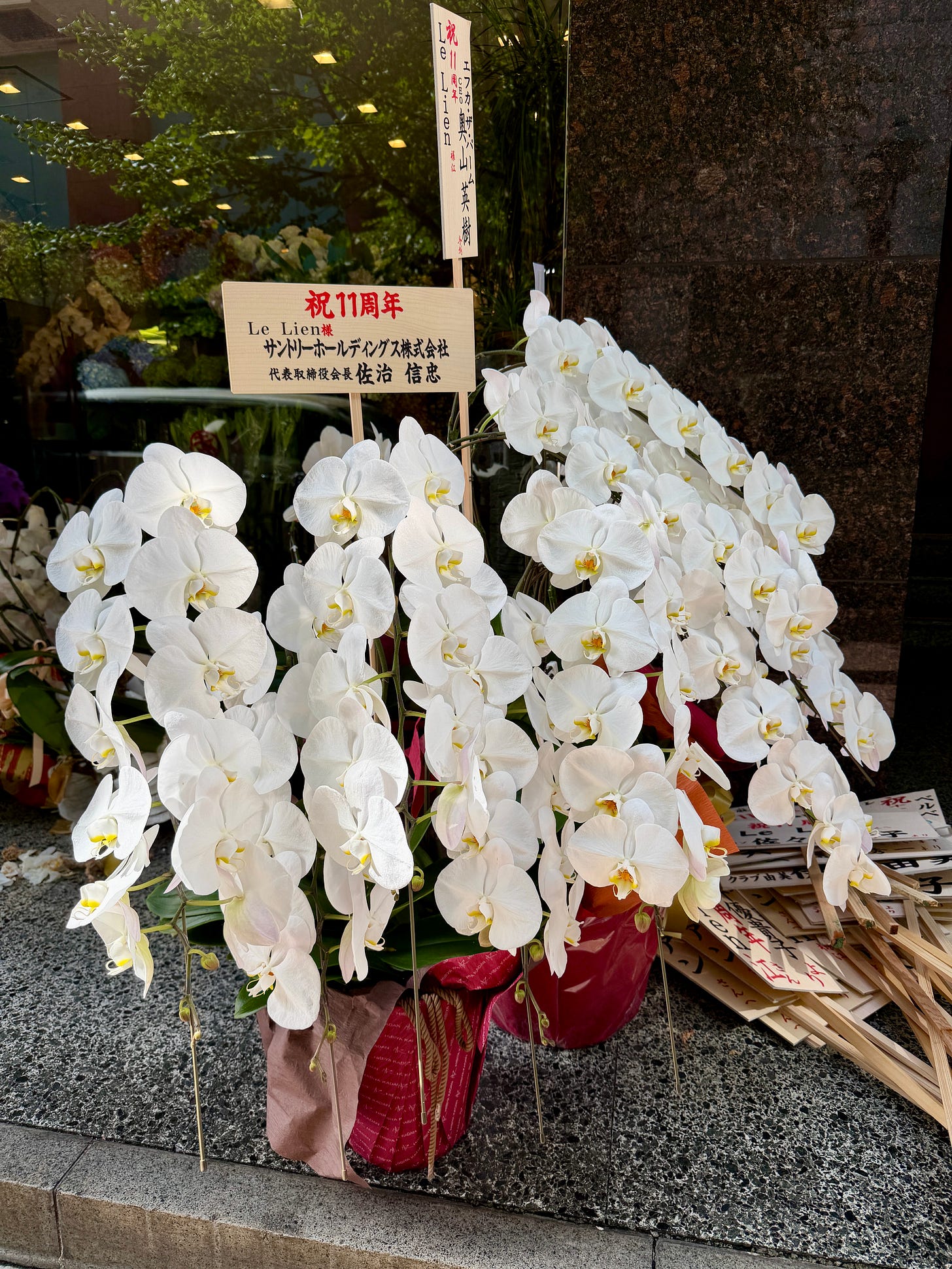Japan, Thank You.
I needed you.
This year has been a chaotic combination of maximum stress, maximum joy, and not a lot in between.
Every moment with Ford since his February arrival has been perfection. Somehow none of the crying, sleepless nights, or moments of helplessness have actually felt stressful. I’ve stayed calm and focused on giving him what he needs, even when I can’t fully meet the moment. (Let’s just say that Jenelle and I are equipped differently.)
Ford brings me a peace and joy I never expected, and I’m deeply grateful for him.
Everything else, however, has been far less peaceful. The political, social, and economic environments are unrelenting, and that tension inevitably spills into business. At work, we’re launching a new line of business, which is both thrilling and intense. Things are moving fast, and it takes constant discipline to invest time, mine and the team’s, in the right places.
The year has felt disorganized.
That changed the moment I arrived in Japan. To be honest, it was exactly what I needed. Japanese culture radiates intentionality: appreciation of the moment, immersion in experience, respect for others, and graceful transitions from one state of being to another.
From small acts of gift-giving (omiyage), to the minimalist design of spaces, to the quiet respect for presence, to the oshibori before a meal, Japan has a way of encouraging stillness. It invites you to compartmentalize stress and be fully in the moment.
One experience captured that spirit perfectly.
When my Uber driver dropped me off at Haneda Airport, he handed me a small gold packet and suggested that I take it after a meal. It turned out to be Pabron Gold A, an over-the-counter cold medicine that many Japanese people keep on hand. It was such a simple act of omotenashi, hospitality through care and foresight. He didn’t know me, yet he wanted me to travel well. It wasn’t grand, but it was deeply human.
That brief exchange reminded me that real kindness is often practical, quiet, and rooted in empathy. You see it everywhere in Japan: in the folded towel, the carefully wrapped gift, the respectful bow. Every action serves a purpose. Every detail communicates care.
Here are a few things I’m taking home from my first trip to Japan:
What I’m Taking Home
Oshibori
Friendsgiving is going to look different this year. I plan to greet everyone with a warm oshibori, a simple cloth that in Japan symbolizes transition, hospitality, and care. It’s a reminder to pause, reset, and leave stress at the door. We could all use that kind of intentional reset before sharing a meal.
Spa
I’ve always known that I should prioritize stretching, massage, sauna, and cold plunge. This week proved that I actually need to do it. After making time for that routine four times in one week, I feel like a new man. The Japanese onsen and sento culture reminded me that caring for the body is a form of mental clarity.
Purposeful Design
We have an infant, so some areas of the home will always be a bit chaotic. But others don’t need to be. We also don’t need to fill every space. In Japan, the concept of ma, the beauty of empty space, teaches that absence is as meaningful as presence. The built-ins in our living room don’t need to be full. In fact, they shouldn’t be. I’ll do better.
Gardening
We have beautiful landscaping, but I’ve treated its care as a chore. I’m reframing it as an opportunity to focus and reset. I’ll still let the robot mow the grass, but I have a date with our trees and pruning shears soon. The Japanese principle of wabi-sabi. finding beauty in imperfection and transience, feels like the right mindset for this.
Morning Intention and Evening Journaling
The best way to organize your thoughts is to write them down. I tell others this all the time but rarely follow it myself. That’s changing. Beyond journaling in the evening, I plan to start each day by setting an intention. Whether through prayer, reflection, or quiet meditation, I want to begin the day grounded rather than reactive.
What I need to stop doing is checking email or Slack before my eyes are even ready to focus. The morning cortisol spike that comes from instant urgency helps no one.
Now, it’s Your Turn
Travel has a remarkable ability to inspire introspection. If you’ve never left your home country, buy a ticket. Go somewhere you don’t know the language. Go alone. Let the discomfort teach you. Do it now.
When you return, you’ll be closer to yourself and better able to serve others.
-AM
Arigatou gozaimashita.
ありがとうございました


